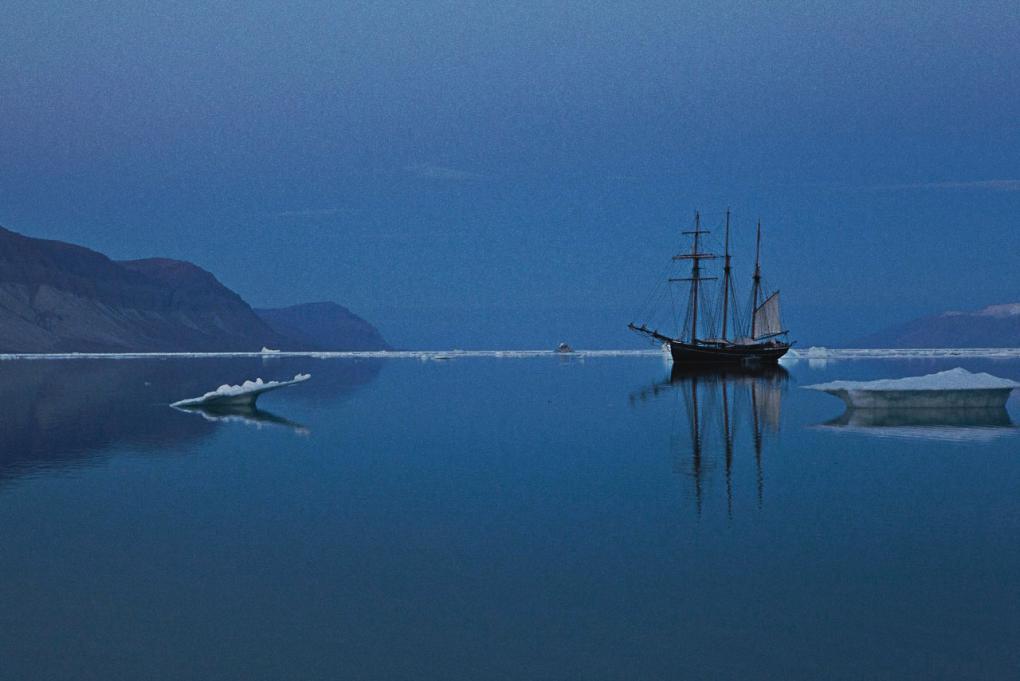With the same sense of wonder that drove explorers of the past to discover new continents, a team of scientists and artists raised anchor this summer to head for Northeast Greenland to see our planet at its purest. One of the last unexplored places on Earth these icy inlets have been buried under permafrost since the Ice Age. Now traces of life's beginning have become accessible to Man because of the melting Arctic — the same process that many believe will end life on Earth as we know it.
Joining the expedition was a trio of filmmakers, Janus Metz, Daniel Dencik and Michael Haslund-Christensen, in charge of a film crew documenting the journey. "The Expedition to the End of the World" follows the artists and scientists onboard collaborating in their attempt to measure, understand, explain and ask new questions about the natural world.
But the film does not so much focus on the facts and measurements gathered by the experts as on how we as human beings respond to nature and on our relationship to its vast and inexplicable beauty. Here lie the important truths as to who we are and how we understand our life on Earth.
Amid the sublime scenery of the Arctic where ice is king, the story takes a privileged look at Homo Sapiens, simultaneously part of and alienated from nature that we constantly try to control. Creating a kind of 'Apocalypse North', the film is a journey into the 'heart of lightness', as one of the expedition members is reported to have said: where enlightenment and ice might just be the greatest challenges on Earth.
The Expedition is an expedition film, but also a road movie where the journey itself is the narrative motor. Also, the mythology of the voyage is central, visualised by sails stretched by the wind and torn by storms, clear waters mirroring the moon, speed contrasted by slowness. However, this is a journey not only in the realm of physics. The vast nature reserve is a metaphor for the recesses of the mind, and so the journey is also a voyage of discovery towards the unknown territories of our understanding, in the film reflected through abstract images such as mysterious footage from underwater cameras.
The filmmakers are inspired by classical apocalyptic fiction film that mixes seriousness with humour to portray the demise of civilisation. Calling their documentary a 'tragi-comedy', they draw on the absurd contrast between microscopic human behaviour and monumental nature.
The trio is an experienced team. Director Daniel Dencik is best known for his editing work on awardwinning films such as "The Five Obstructions" and "Into Eternity", while Janus Metz is director of several feature documentaries, including his international breakthrough "Armadillo" about Danish troops in Afghanistan. Michael Haslund-Christensen has previously ventured into arctic territory with "The Track" (1988) and "The Prize of the Pole" (2006).
